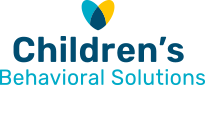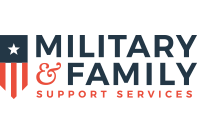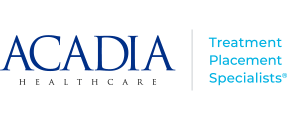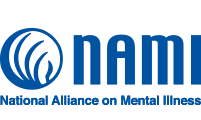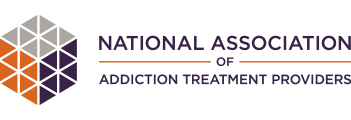A dual diagnosis can have a devastating impact on the lives of everyone it touches. Acadia Healthcare’s network of treatment facilities offers inpatient, residential, and outpatient care for individuals of all ages and genders. Your path to recovery from a dual diagnosis can begin at an Acadia facility.
Understanding Dual Diagnosis
A dual diagnosis occurs when an individual experiences addiction and a mental or behavioral health disorder at the same time. It does not matter what order a person develops a substance use or mental health disorder; the individual can develop either disorder first to experience a dual diagnosis. Sometimes a person might turn to drugs or alcohol to help them cope with the symptoms of a mental or behavioral health disorder. This is a form of self-medicating — or medicating without the help of a trained mental health professional — and can actually worsen the symptoms of a mental or behavioral health disorder, putting a person at a higher risk for developing a substance use disorder. Other people might start to experience symptoms of a mental health disorder as a result of substance abuse, which can also lead to a dual diagnosis.
The symptoms of a dual diagnosis can vary greatly depending on the mental or behavioral health condition the individual is experiencing. Some general warning signs that a person might be experiencing a mental or behavioral health challenge might include extreme changes in mood, problems concentrating, sudden lack of interest in activities they used to love, trouble falling or staying asleep, and eating too much or too little. Symptoms of a substance use disorder might include withdrawing from friends and family, taking risks they normally wouldn’t, and acting in ways that seem out of character for that individual.
The treatment facilities within Acadia Healthcare’s international network offer compassionate care to people of all ages and genders who are struggling with dual substance use and mental health disorders. Acadia’s treatment facilities provide a full range of evidence-based options to help individuals start the healing process, including detoxification services, medication-assisted treatment, group therapy, individual therapy, and much more. The dedicated professionals at Acadia Healthcare’s treatment facilities are specially trained to help you or your loved one find the care plan that’s best suited for your dual addiction and mental health challenges.
Why Consider Treatment for Dual Diagnosis
Living with an addiction or a mental or behavioral health disorder can be exceptionally challenging, but experiencing both at the same time can worsen the effects of each disorder. When a person experiences a dual diagnosis, they often face much more severe symptoms than if they were experiencing a substance use or mental health disorder in isolation. Neither addiction nor mental health challenges usually go away on their own. As the symptoms of each disorder interact with one another, they typically continue to worsen the longer a person goes without professional treatment.
Both addiction and mental health disorders can affect people’s lives and overall health in so many different ways. Depending on the substance a person is abusing, addiction can cause heart problems, liver and kidney damage, and breathing problems, and can increase a person’s risk for certain cancers. And both substance use and mental health disorders can affect a person’s performance at school and work, impact their relationships with loved ones, and increase their risk for death by suicide. These effects can impact a person’s life in the long-run if they don’t seek immediate care for a dual diagnosis.
The most effective way to heal from a dual diagnosis of a substance use and mental or behavioral health disorder is to work with an interdisciplinary team of caregivers who understand how to help you or your loved one with both types of disorders simultaneously. The compassionate professionals at Acadia Healthcare’s treatment facilities understand how each condition might affect the other and will help you or your loved one put together a care plan that is catered to your unique needs. Acadia’s international network can address both your addiction and mental health challenges through evidence-based solutions that can get you on the road to long-term recovery.
Levels of Care Offered Through Acadia Healthcare
Depending on the type and severity of an individual’s addiction and mental health symptoms, most of Acadia Healthcare’s treatment facilities offer various treatment options and multiple levels of care for a dual diagnosis. Whether an individual needs the intensive level of care provided through inpatient treatment or simply the structured support of traditional outpatient services, the Acadia Healthcare network provides the treatment options to meet each individual’s needs.
Detoxification services: This short-term service (typically five days) helps to safely remove any substances from the individual’s system under the constant care of medical professionals and/or addiction treatment experts, helping limit withdrawal symptoms and minimizing future substance cravings.
Inpatient treatment: This short-term treatment intervention (typically five to seven days) is the most intensive level of care and is designed to help individuals who are experiencing severe symptoms to feel stabilized enough to return home or step down to a lower level of care.
Residential treatment: The length of stay varies depending on the individual’s needs (could be 28 days to multiple months) but includes round-the-clock care in a structured environment, with opportunities to participate in multiple therapeutic activities, which might include individual, group, family, and experiential therapies.
Partial hospitalization program (PHP): This care option typically includes a full day of treatment for five to six hours a day, five days a week. Group therapy is usually used as the main means of care, although additional services may be offered depending on the facility.
Intensive outpatient program (IOP): This care option typically includes two to three hours of treatment three or four days a week, with group therapy usually used as the main means of care.
Traditional outpatient services: Individuals can schedule individual, group, or family therapy sessions based on their unique needs, whether that’s weekly, biweekly, or monthly.
Learn More
To learn more about any of the exemplary programs that Acadia Healthcare offers for the treatment of dual diagnosis challenges, please do not hesitate to contact a treatment facility near you. The staff at any facility in the Acadia Healthcare international network can help you find a treatment facility that can set you or your loved one on the path to healing from any number of addiction and mental health concerns.
